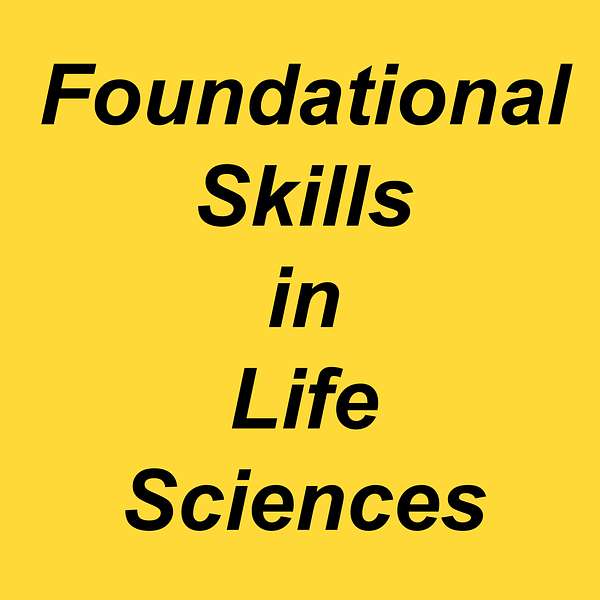
Foundational Skills in Life Sciences
Students and scholars in life sciences need to use many skills to survive and excel during scientific training, which involves listening, reading, writing, and speaking.
But I have seen many of them struggle in understanding and learning those skills.
I am a professor in the U.S., a tenured faculty member with MD, PhD degrees.
I will guide you through the skills, so that you will learn and improve successfully in your professional life.
Please visit my website for more information (https://synaptologica.com/), and send me emails with questions, comments or ideas (ideas@synaptologica.com).
Foundational Skills in Life Sciences
20. Detective work of troubleshooting a puzzling experiment: negative control as a guide (mini-series: reading-13)
We will experience the fascinating world of scientific troubleshooting. In this episode, we will revisit a life-science experiment where researchers aimed to see if a specific chemical compound could enhance a particular function in cultured cells. Their plan seemed straightforward - a pilot experiment with a positive control (active compound) and a negative control (inactive compound). They wanted to confirm everything worked as expected. But the results were strange! Both the positive and negative controls showed unexpectedly high cell function, leaving the researchers scratching their heads. Join us as we explore the initial troubleshooting steps. Help us by showing your idea: where in the protocol the problem could be hiding. Stay tuned for the next episode where we continue this exciting discussion.
This is Part 13 of the reading mini-series "Let’s read a paper written by Nobel Prize Laureates, 2023."
(My email is active. But my website is under construction. Please wait for a while. Thank you for the patience!)